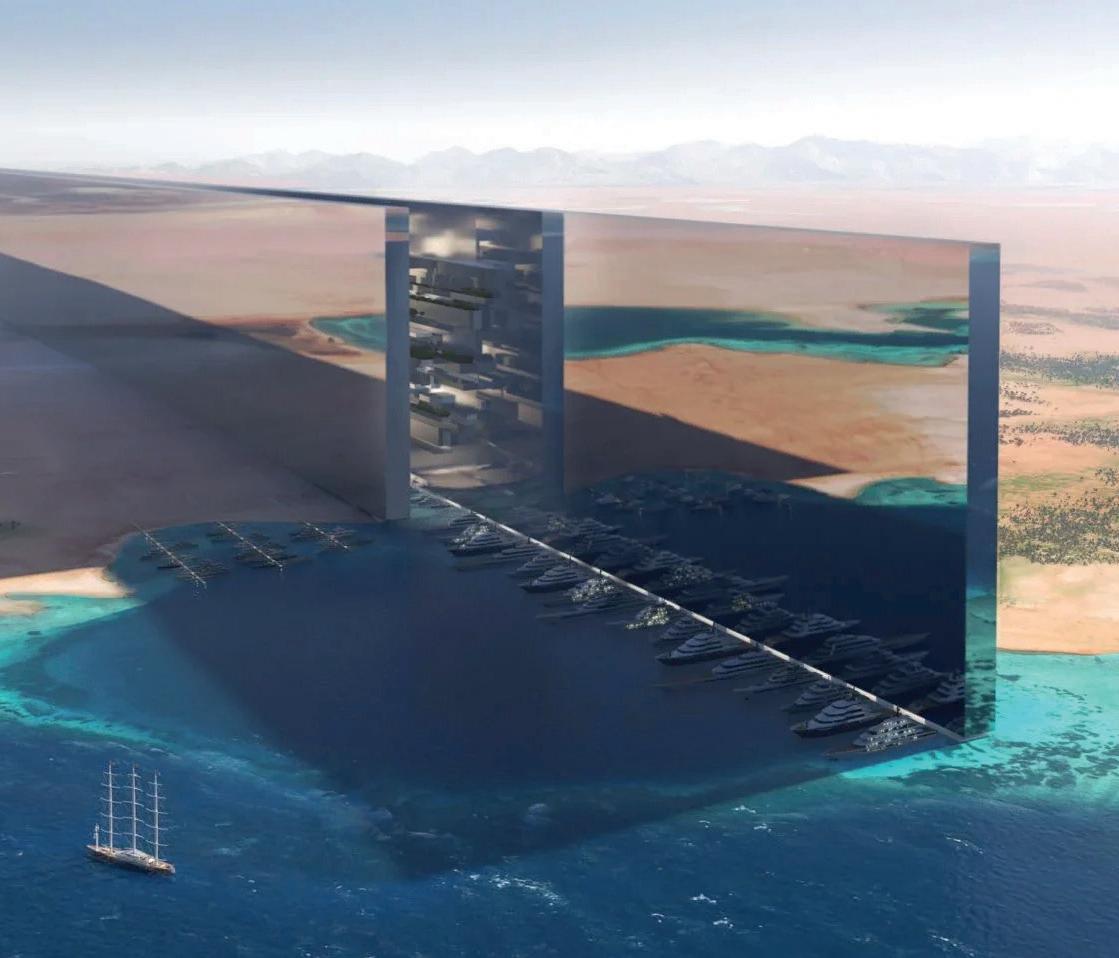
3 minute read
HIS ROYAL HIGHNESS SHEIKH MOHAMMED BIN SALMAN AL SAUD
Crown Prince And Prime Minister Of Saudi Arabia
If the UAE broke the mould when it comes to global, open, and pioneering Middle Eastern nations, Saudi Arabia is the one taking it to the next level. With a massive interest in holding some of the world’s leading sporting events, to building the world’s tallest building, and also the futuristic mega-city NEOM, Saudi Arabia is not only a leading light for the Middle East, but the world itself.
Advertisement
Much of this revolution in Saudi policy has come under the rebranding strategy of its new leader, Crown Prince Mohammed Bin Salman, popularly known as ‘MBS’. One could even say that given a royal leader carries such an acronym, it points to a new era – instead of a regal sounding full name complete with honorific titles, the option that his forefathers and European royal dynasties would opt for, we have a shorthand, trendy way to refer to Saudi Arabia’s leading man which is more synonymous of a US President, such as JFK or LBJ.
MBS has become renowned globally as a progressive force in Saudi Arabia, having restricted the powers of religious police and improving women's rights, such as the removal of the ban on female drivers in 2018. Other cultural developments under his reign include the first Saudi public concerts by a female singer, the first Saudi sports stadium to admit women, an increased presence of women in the workforce, and opening the country to international tourists by introducing an e-visa system, allowing foreign visas to be applied for and issued via the Internet.
Vision 2030
Perhaps most famous of MBS’s policies has been Vision 2030. The Saudi Vision 2030 program aims to diversify the country's economy through investment in non-oil sectors including technology and tourism. Under HRH MBS, Saudi Arabia started co-ordinating its energy policy with Russia since 2016, and also strengthened its relations with China, signing a comprehensive strategic partnership with Xi Jinping in 2022. In
2023, Saudi Arabia restored full diplomatic relations with Iran leading to a wider regional rapprochement, including negotiations for peace deal with Houthis, following talks mediated by China.
HRH Mohammed Bin Salman said the vision is rooted in 3 core pillars: “The first pillar of our vision is our status as the heart of the Arab and Islamic worlds. We recognize that Allah the Almighty has bestowed on our lands a gift more precious than oil. Our Kingdom is the Land of the Two Holy Mosques, the most sacred sites on earth, and the direction of the Kaaba (Qibla) to which more than a billion Muslims turn at prayer.
“The second pillar of our vision is our determination to become a global investment powerhouse. Our nation holds strong investment capabilities, which we will harness to stimulate our economy and diversify our revenues.
“The third pillar is transforming our unique strategic location into a global hub connecting three continents, Asia, Europe, and Africa. Our geographic position between key global waterways, makes the Kingdom of Saudi Arabia an epicentre of trade and the gateway to the world.”
His Highness Sheikh Ahmed bin
Saeed Al Maktoum has quite a resume. As well as being a member of Dubai's ruling Al Maktoum family, he is the President of the Dubai Civil Aviation Authority, CEO and founder of the Emirates Group, and chairman of investment company Dubai World. Further to this, he is also the current Chancellor of The British University in Dubai, Chairman of the Dubai Supreme Fiscal Committee, Chairman of the Dubai Airports Company, second Vice Chairman of the Dubai Executive Council, and Chairman of Emirates NBD Bank PJSC.
Given the various roles and influence Sheikh Ahmed holds, he is a key voice in the Middle East and a major player in how the region will develop in the future. HH Sheikh Ahmed bin Saeed Al Maktoum began his aviation career in 1985, when he was appointed President of the Dubai Department of Civil Aviation. In the same year, he became Chairman of the newly founded Emirates, and helmed the launch of the airline with two leased aircraft to two destinations from Dubai.
Today, he leads the Emirates Group, which includes dnata, one of the world's largest air services providers offering ground handling, cargo, travel, and flight catering services across five continents. Emirates is now an award-winning global airline with a network of more than 150 destinations spanning six continents. With more than 270 aircraft, the airline has the world’s largest fleet of Boeing 777s and Airbus A380s. Under his leadership, Emirates has been profitable for the last 30 years, a rarity in the airline industry.
Most recently, Emirates reported an annual profit of AED10.9 billion (US$3.0 billion), a new profit and revenue record and a significant turnaround from 21/22 (increase of 81%) with strong customer demand worldwide with almost all travel restrictions removed. HH Sheikh Ahmed bin Saeed Al Maktoum, took the news in humble fashion, pointing to the broader regional reforms of HH Sheikh Mohammed: “We’re proud of our 2022-23 performance which is not only a full recovery, but also a record result. This achievement would not have been possible without HH Sheikh Mohammed bin Rashid Al Maktoum, UAE Vice President and Prime Minister, and Ruler of Dubai, whose leadership has been critical to our success today and through the years.
“The architect of Dubai’s










